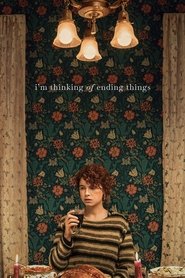— Other animals live in the present. Humans cannot, so they invented hope.
I'm truly not one for brushing off a film simply because "I didn't like the characters", but it's difficult to creatively and open-heartedly engage with a movie when it appears to hold its subject and people in some form of contempt. The problem is particularly exacerbated here as Kaufman's avatars of the human condition can be exaggerated beyond the margins of conventional realism due to a thick layer of his post-Lynchian dream logic which, in addition, does not require any explication of narrative decisions and thus traps the viewer into having to accept absurd characterisations because "well, that's just how this film world works". It often feels like something of an artistic 'get out' clause; an avoidance of meaning, at one with the middlebrow namedrops of Pauline Kael, Gena Rowlands, Wordsworth, etc.
I found it easy to identify a parallel here with the Coen brothers' condescension towards people outside of the big city. Whilst the Coens seem to sublimate feelings of abjectness through multiple "woman in a secretarial role with above average BMI" characters and (more troublingly) ethnic minorities, Kaufman seems to alight on rather uninspired riffs on American Gothic, which, I fear, he sincerely believes is broadly positive and warm. One thing that is absolutely entirely on me, however, is that I have a strong aversion to that particularly Broadway style of earnestness. Even when a New York filmmaker attempts to make a film about somewhere else in America, they still find a way of somehow making it all about freakin' New York.
Strains to evoke both humanistic tenderness and aesthetic wonder. Kaufman seeks admiration for his warmhearted and gentle humanism and also for his extravagant creativity, even when the latter gets in the way of the former—when his cleverness stands like a child’s antics in front of the screen where the movie is playing, defying viewers to pay attention to what’s going on behind him while amiably indulging or ignoring his trickery.
— Richard Brody (The New Yorker)

